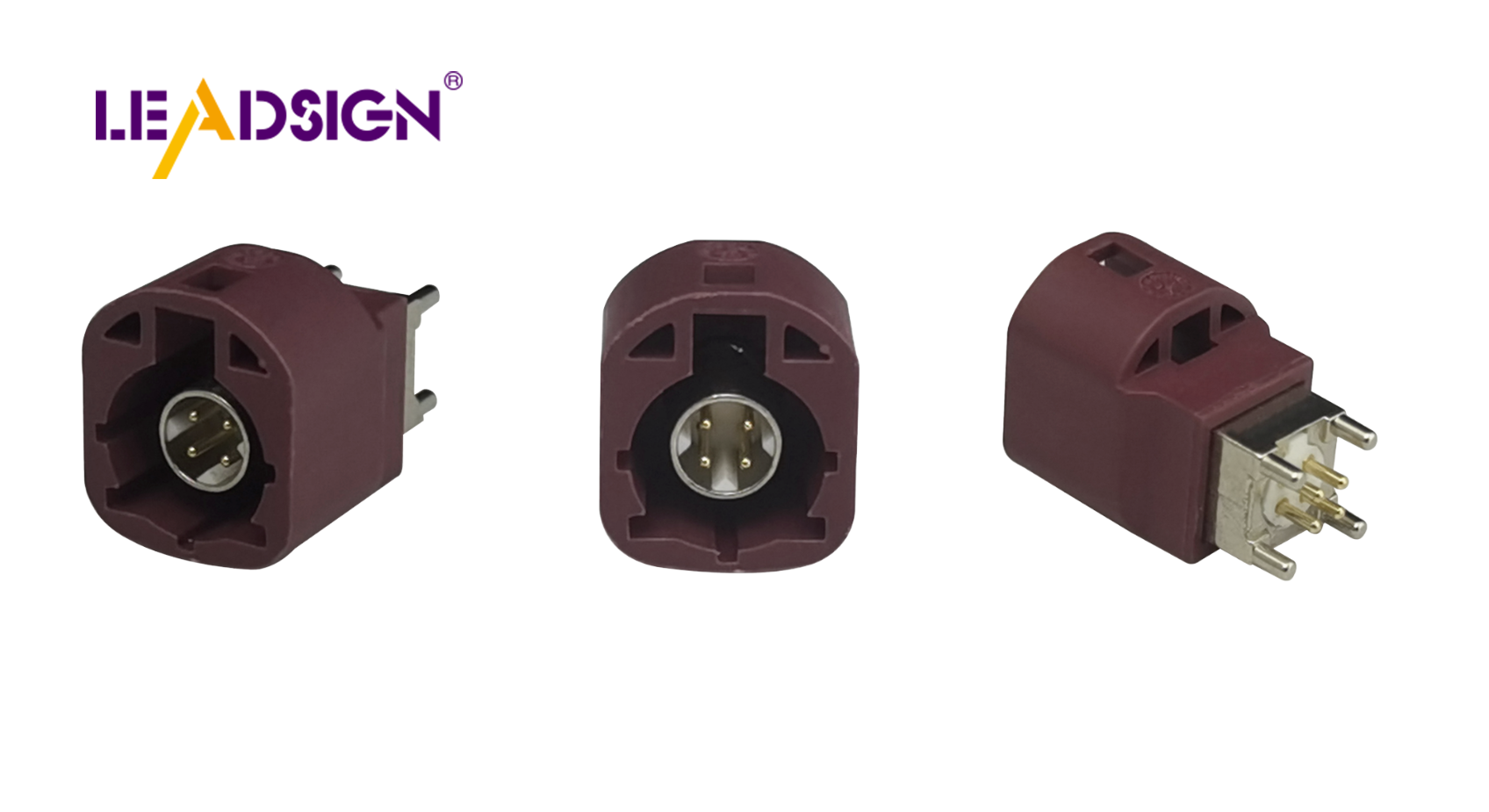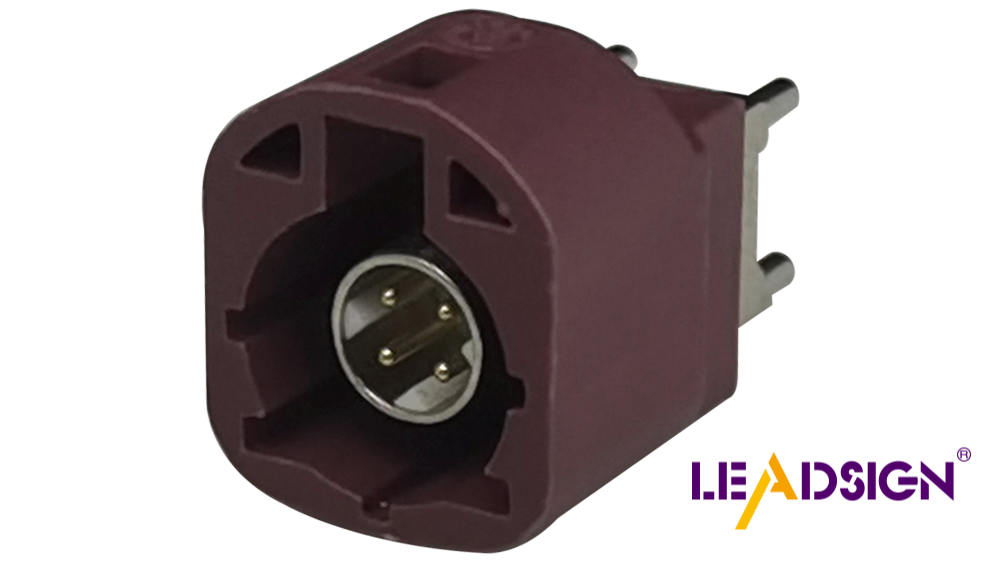Exploring Automotive Electrical Connector Types with HSD

Automotive electrical connectors are crucial components in modern vehicles, linking various electrical systems to ensure optimal performance and safety. As cars increasingly rely on electrical and security features, the demand for reliable connectors grows. High-quality connectors are essential for maintaining stable electrical connections. Among the different automotive electrical connectors types, the HSD PCB Connector stands out. It facilitates high-speed data transfer, supporting advanced automotive technologies.
Automotive electrical connectors are important for a car's electric systems. They connect parts to let electricity and data flow. Knowing about different connectors is key for car tech fans.
Connectors have different types, each with a job. Here are some:
Power connectors move electricity between parts. They give devices the power they need. These connectors are strong and handle big power loads, which is vital for cars.
Signal connectors send data signals in the car. They help sensors and devices talk to each other. These must keep signals clear for good performance and safety.
The HSD PCB Connector is special because it handles fast data transfer. It helps with new car tech like infotainment and driver aids. Its design stops interference, making it work well in tough spots.
Each connector has parts that make sure connections are safe and work well.
Contacts inside connect electricity. They're made from copper or gold-plated metals to last long and work well.
Housings hold the connector together and protect it from damage. They're made of strong plastic or metal to keep everything safe.
Seals keep out water, dust, and dirt so connections stay good even in bad weather.
Knowing these helps pick the right connector for cars today, making them better and safer.
Design and Functionality of HSD PCB Connector
Key Features
High-speed data transmission
The HSD PCB Connector is great for fast data. It works with USB, LVDS, and Ethernet. This helps car systems like infotainment and driver aids connect easily. Data moves smoothly between car parts, making everything work better.
Shielding and protection
Good shielding keeps data safe in cars. The HSD PCB Connector stops electromagnetic interference (EMI). EMI can mess up signals. This is important where there's lots of electrical noise, like in cars. With strong EMI shielding, devices talk well, keeping the car's systems safe.
Design Considerations
Material selection
Choosing the right materials is key for the HSD PCB Connector. Makers use strong plastics and metals to handle tough conditions in cars. These materials help keep connections firm even with lots of shaking.
Environmental factors
Weather affects how the HSD PCB Connector is made. Designers think about temperature changes, moisture, and dust. Seals protect inside parts from these things so they last long. The connector fits many wire sizes too, working well in different uses without losing protection.
Importance and Uses of HSD PCB Connector
Car Uses
Entertainment Systems
HSD PCB Connectors are key in car entertainment systems. They help connect audio and video devices easily. These connectors make sure music and videos play smoothly. Passengers enjoy streaming without stops, making trips better. They also link navigation systems for real-time traffic info.
Driver-Help Systems (ADAS)
In driver-help systems, HSD PCB Connectors are a must-have. They join sensors and cameras to the car's main computer. This lets data move fast, which is needed for quick decisions. Features like lane warnings use these connectors to work well. Fast data helps make driving safer.
Benefits of HSD Connectors
Better Data Transfer
HSD Connectors move data better. They work with USB, LVDS, and Ethernet, important for cars today. These connectors block electrical noise so data stays safe when sent. This is crucial in cars where noise can mess up signals.
Boosted Car Performance
Using HSD Connectors boosts how cars perform. They help car parts talk quickly, making systems work best. For example, they speed up sensor info processing for safety features to react faster. Their strength means they last in tough car conditions, reducing breakdowns.
Practical Tips for Picking Connectors
Things to Think About
Fit
Picking the right connector makes sure everything works well. It should fit with the car's parts to stop electric problems. Match connectors to the car's needs for them to work right and not break.
Strength
Strong connectors are important. They need to handle tough car conditions. Good ones don't rust easily and last long, so you don't change them often.
Mistakes to Watch Out For
Ignoring Weather Effects
Not thinking about weather can make connectors fail. Heat, water, and dirt can mess them up. Seals keep these out, making sure they work well. Always think about where the car is used when choosing connectors.
Forgetting Future Changes
Planning for new tech is key. Not doing this limits adding new stuff later. Pick connectors that can grow with car tech changes. This helps cars stay updated and work better.
Future Trends in Automotive Connectors

New Technology
Making Things Smaller
Car makers want smaller connectors. Tiny connectors fit more parts in small spaces. This makes cars work better and look nice. Lighter connectors help cars use less fuel. As cars get tinier, tiny connectors are needed more.
More Data Handling
New cars need connectors for lots of data. More data helps systems like music and driver help work well. Fast data moving keeps car parts talking smoothly. This is key for new smart cars.
Cool Ideas in the Industry
Smart Connectors
Smart connectors are a big change in car tech. They check how they work and tell if there's a problem. They give real-time info to keep cars running well and avoid stops.
Wireless Links
Wireless links change how cars talk inside and out. No wires mean less mess and better working. They connect with outside gadgets easily, making them user-friendly. As tech grows, wireless will be used more in car design.
Key Insight: Good connectors are vital for smooth talk and power flow in cars. This keeps them working well for long, say experts.
The future of car connectors is about these changes. As cars change, connectors must grow to meet new needs.
Automotive electrical connectors are very important in cars today. They help different systems work well and safely. The HSD PCB Connector is special because it moves data fast. This is needed for new car tech. As car technology changes, connectors must change too. They need to be safer, smarter, and better for the environment. The future of HSD connectors looks good. They might get better designs and features to help cars even more.
See Also
Essential Insights into HSD Connectors for Automotive Sector
Significance of HSD Connectors in Automotive Sector
Benefits of HSD Connectors for Automotive Applications

